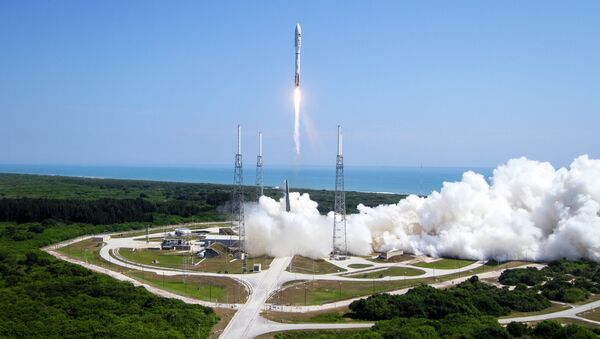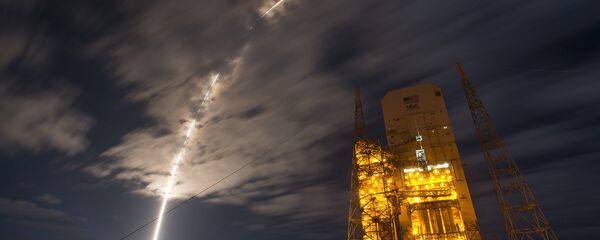In a Tuesday announcement, Secretary of the Air Force Heather Wilson said the Air Force had identified six candidate locations to house the new command, which was elevated in December 2018 to the Pentagon's 11th functional Unified Combat Command.
The new headquarters will serve not only as the hub for the Air Force's intensified space ops, but is also a necessary step in launching US President Donald Trump's sixth branch of the armed forces, the US Space Force. The USSF, it was announced earlier this year, will fall under the purview of the Air Force in the same way the US Marine Corps is a part of the Department of the Navy.
On top of the prestige, the command would bring to town as many as 1,450 personnel, including 390 military officers, 183 enlisted personnel, 827 civilians and 50 contractors, according to AL.com.
The facility is expected to cost $84 million, according to WGCU.
Of the the six possible locations being weighed by the Air Force, four are in Colorado, one in Alabama and one in California.
Contender Buckley Air Force Base in Aurora, Colorado, is the home of the Air Force's 460th Space Wing, which handles global infrared surveillance, tracking and missile warning systems, as well as other heavily space-based agencies, such as the Air Force Weather Agency.
Also under consideration is Colorado's Peterson Air Force Base, which serves as US Northern Command headquarters and is the provisional home of the Space Command at present.
A third potential Colorado location is Cheyenne Mountain, an underground facility built deep inside a mountain that hosts the headquarters of North American Aerospace Defense Command (NORAD). It also contains US Strategic Command's Missile Warning Center It's designed to withstand direct nuclear strikes.
Colorado's final candidate, Schriever Air Force Base, is home to the Missile Defense Integration and Operations Center and the US Air Force Warfare Center, as well as the main control point for the global positioning system (GPS), which triangulates positions on Earth using satellites in orbit. Schriever also houses the 50th Space Wing, which manages most of the Pentagon's warning, navigational and communications satellites.
A fifth option is Redstone Arsenal in Huntsville, Alabama. Redstone is the home of the US Army's Aviation and Missile Command, the Missile Defense Agency and NASA's Marshall Space Flight Center.
The final option is Vandenberg Air Force Base on the California coast, about 120 miles west of Los Angeles. Vandenberg is the Pentagon's primary space and missile testing base and houses a large space port used to test intercontinental ballistic missiles, as well as to launch objects into polar orbit.
Conspicuous by its absence is any Florida location — something hotly anticipated by aerospace community members and their advocates in the state that houses Cape Canaveral Air Force Station and Kennedy Space Center, which serves as the launch operations center for NASA, the US civilian space agency.
Just last week, members of the Florida Defense Support Task Force, which advocates on behalf of defense related enterprises in the state, told members of the press, "We are space, you just gotta say it… Where else would you put a headquarters than the place that lives space?"
Dale Ketcham, vice president of government and external relations of Space Florida, the state's aerospace economic development agency, told the Orlando Sentinel that Wilson had "misled a number of members of our delegation," leading them to believe Florida would make the service's short list for Space Command headquarters.
A decision from the Air Force is expected before the summer is out.





